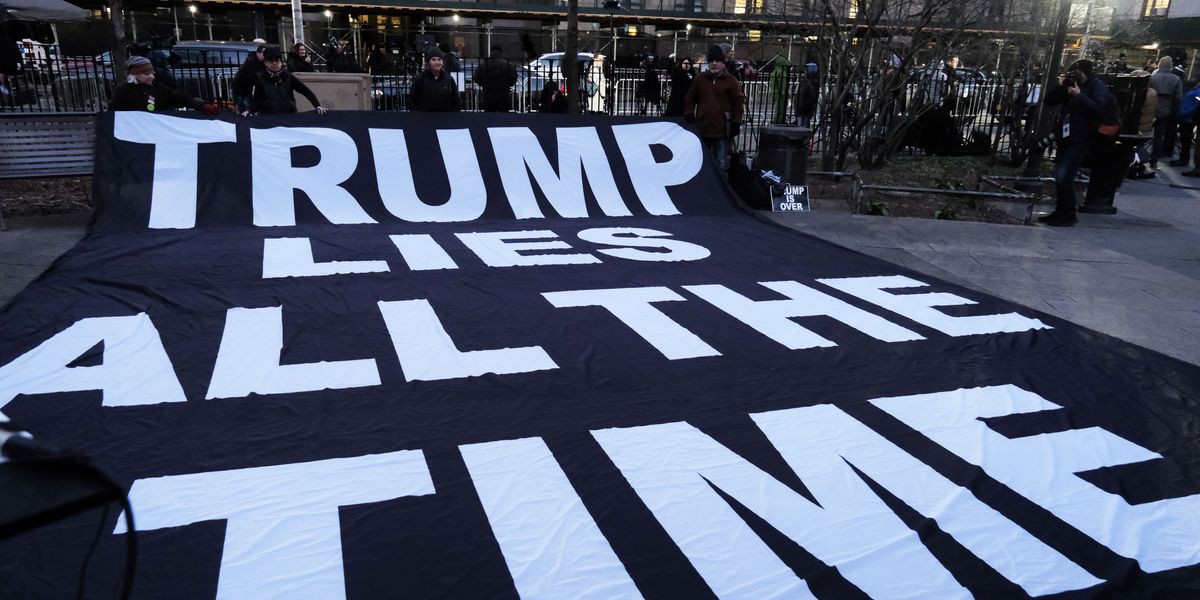
Donald Trump has been indicted.
You’re going to hear three basic criticisms of this indictment. Let me rebut each in turn.
1. It sets a dangerous precedent.
Rubbish. In order for the justice system to work, there must be trust that the system will not play favorites or ignore the wrongdoing of the powerful.
Donald Trump has done everything possible over the last seven years to destroy that trust for his own political gain.
Since the basic issue here is one of accountability, this case could actually open the way for the other, more serious ones.
It is true that no former president has ever been indicted, but no former president has done what Donald Trump has done — repeatedly defied laws and disregarded the U.S. Constitution. America never quite recovered from Gerald Ford’s decision to pardon Richard Nixon for all crimes he might have committed.
The Framers of the Constitution explicitly provided that presidents could be charged after leaving office. Article I Section 3 states that a president impeached by the House and convicted and removed from office by the Senate “shall nevertheless be liable and subject to indictment, trial, judgment and punishment, according to law.”
The fundamental idea that no one is above the law is only true if we make it so. Holding our leaders accountable is vital to maintaining trust in our legal system, and the survival of our democracy itself.
2. The indictment plays into Trump’s claims that he’s the victim of a witch hunt and will further rile his core supporters
Irrelevant. Undoubtedly some Trump supporters will be upset by this. The indictment will confirm for them that Trump is not only being prosecuted but also being persecuted.
But Trump has used every move against him so far — whether by the FBI, the Justice Department, Congress, or even opponents in the Republican Party — to claim he’s the victim of a witch hunt. This indictment is not fundamentally different from all the other charges and allegations. His entire campaign is founded on variations of this same grievance.
But in this case, a grand jury has found that he broke the law. It will be harder to cast an independent grand jury composed of ordinary people as part of a “deep state” witch hunt.
3. This is the weakest of the cases now being prepared against Trump
So what? To be sure, paying hush money to cover up something embarrassing during a presidential campaign is not nearly on the same level as asking Georgia’s secretary of state to “come up” with the exact number of votes needed to reverse the outcome of Georgia’s presidential election, or fomenting an attack on the U.S. Capitol.
And it may be true that an allegation like this is usually treated as a misdemeanor rather than a felony.
None of this alters the fact that a grand jury had enough evidence in this case to decide that Trump broke the law. That’s the critical point. A federal judge can decide whether the case rises to a felony or is more appropriately treated as a misdemeanor. The overriding issue is that no person is above the law, not even a former president.
Indeed, since the basic issue here is one of accountability, this case could actually open the way for the other, more serious ones. Prosecutors in Georgia and Washington won’t have to bear the burden of justifying an action that had never been taken before. Their more serious charges would come to a public that had already adjusted to the phenomenon of a Trump indictment.
This content originally appeared on Common Dreams and was authored by Robert Reich.
Robert Reich | Radio Free (2023-03-31T14:33:03+00:00) Rebutting 3 GOP Talking Points on Trump Indictment. Retrieved from https://www.radiofree.org/2023/03/31/rebutting-3-gop-talking-points-on-trump-indictment/
Please log in to upload a file.
There are no updates yet.
Click the Upload button above to add an update.